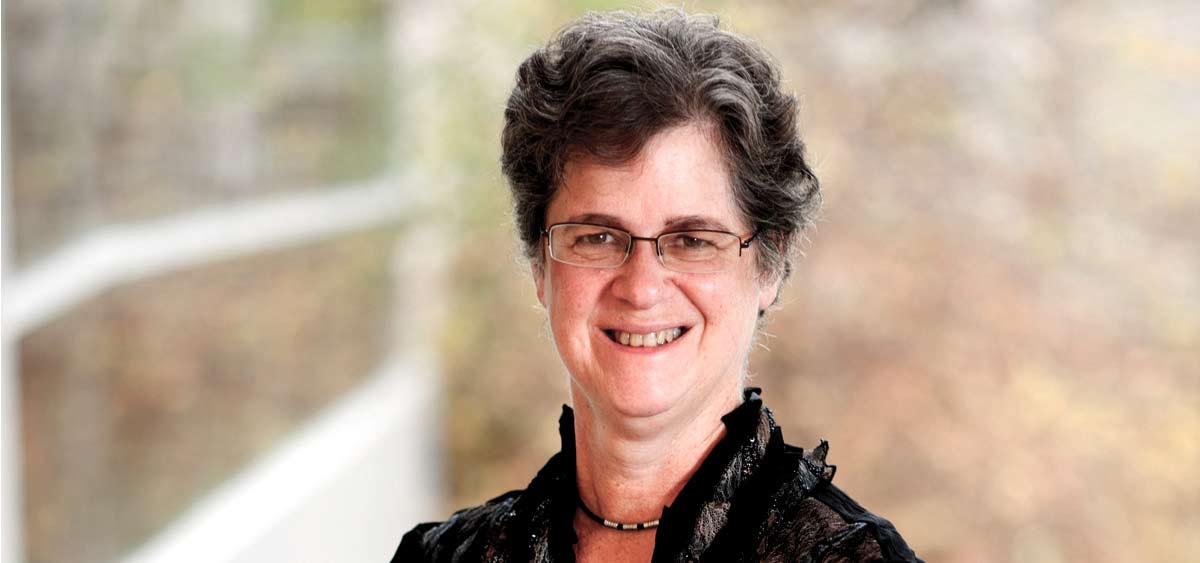
A Series of Strong Role Models
Erica Golemis, PhD, has always had strong role models to help her forge her career. Even as a child, Golemis had the privilege of watching her mother take on an engineering role in which she was the only woman in leadership for most of her career.
“Both my parents are engineers. I think it was difficult for my mother because she was interested in art, but coming from a very poor background, she was grimly determined that there was going to be some cash in the family. She went to Pratt Institute, which she was able to attend on academic scholarship, and she was one of four women in her class of engineering in 1954. She then spent a long career at the Port Authority of New York and New Jersey, designing airports,” said Golemis.
Although she did not become an engineer like her parents, Golemis blazed her own path in the sciences at a young age, becoming engrossed in her school’s biology program. “I’ve always been entranced with creatures and life in all its forms, and I just thought it was very cool. I also developed a serious bug for science fiction when I was around 11 years old. My school also had really good science teachers, so with all of these things together, I was quite interested in biology from an early age,” Golemis said.
Golemis received her undergraduate degree at Bryn Mawr College, where she majored both in biology and English, reflecting a second area of intense interest—the study of literature and love of writing. “I think the fact that we encourage students to focus exclusively on STEM [Science, Technology, Engineering, and Mathematics] is not necessarily the best way to go. Learning how to think broadly across disciplines as an undergraduate is invaluable for developing flexibility and creativity. Focusing intensively on becoming a good writer gives you an essential tool that helps in every aspect of your professional life.”
Continuing on in biology, she received her doctorate from the Massachusetts Institute of Technology and then performed postdoctoral training in molecular biology and genetics at Massachusetts General Hospital and Harvard Medical School.
While working at MIT, Golemis researched retroviruses in relation to specific types of cancer. “It had been noted that specific types of murine retroviruses cause different types of cancer, even though they seem genetically quite similar,” Golemis said. “I did a lot of recombinant DNA work, mapping sequences and identifying core elements that caused specific types of cancer. Years later, this work has helped us understand the way specific oncogenes contribute to spontaneous formation of lymphomas and leukemias in humans.”
After her graduate work, Golemis switched from working with murine retroviruses to developing protein interaction technology. She developed a yeast two-hybrid system, which is a way to take one protein and map out all of its partners—a development, she explained, that was an early way to explore cancer signaling. Protein interaction networks explained by using this method provide essential datasets now used in proteomics and systems biology to help develop targeted therapies for cancer and other diseases.
Due to this work, Golemis was recruited to Fox Chase Cancer Center in 1993 to start her independent laboratory. After many productive years at Fox Chase, she is now a professor, co-leader of the Molecular Therapeutics program, deputy chief science officer, and the William Wikoff Smith Chair in Cancer Research.
Golemis joined Fox Chase, and has remained there, because she saw numerous opportunities to not only advance her career but also develop meaningful relationships with colleagues. “On my interview, it seemed like it had a very collegial environment, where time spent mentoring the next generation of scientists would be valued. I also thought that this would be a place where you could flourish as a person running a small independent laboratory that explored creative ideas,” she said.
At Fox Chase, Golemis’ work has blossomed. Her early studies addressing protein interactions have expanded to include bioinformatic studies of tumor diversity. Her laboratory has made important findings in the area of genes that control cancer metastasis. A large body of her work has focused on a small organelle, the cell cilium, that acts as an antenna for signals between cells. Her work has defined how targeted drugs interact with this structure, yielding key insights for understanding therapeutic response in cancer and other disorders such as polycystic kidney disease. For this work, she was elected a Fellow of the American Association for the Advancement of Science in 2019.
Over her years at Fox Chase, Golemis has collaborated with many of her fellow scientists and views these collaborations as a great spur to the generation of new ideas and research directions. From the earliest days, Anna Marie “Ann” Skalka, PhD, was a valuable mentor. Skalka was the scientific director at Fox Chase when Golemis was first hired, has been recognized with many national awards, and is now professor emerita. “I have always thought Ann Skalka was a fantastically inspirational leader, a brilliant scientist, and a role model.”
Another important role model was Robert Perry, PhD, the former Stanley P. Reimann Chair in Oncology Research and a member of the National Academy of Science. “He was my model of a classic scientist, a pure basic scientist doing very important work on fundamental problems,” Golemis said. “I hope that I do half so well as a mentor to my junior colleagues as these exceptional leaders have been to me.”